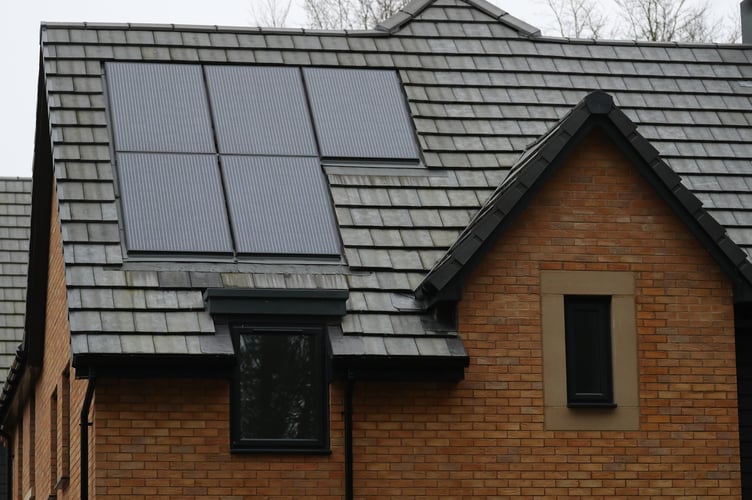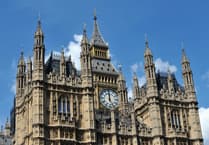More solar panel installations were fitted in South Devon homes in recent months, provisional figures show.
Last week the Department for Energy Security and Net Zero announced builders will be required to fit solar panels on rooftops for most new build homes in England.
With a significant amount of the UK’s carbon footprint coming from gas heating of homes, the Government's future homes standard, which will be published in autumn, is expected to require new residential properties across England to have solar panels and low-carbon heating.
The Government said the measures will help to slash household energy bills and boost the nation’s energy security.
Provisional figures from the DESNZ show there were 5,563 domestic solar photovoltaic installations in the South Devon constituency at the end of March, accounting for 20.8 MW of solar capacity.
It was up from 5,412 and 20.6 MW in December last year.
National figures, which go up to April, show there were more than 1.5 million installations across UK homes at the end of that month.
In April alone, around 20,405 solar PV systems were fitted to homes across the country, which exceeded the 17,000 installations per month median observed over the past year.
Angela Terry, chief executive of One Home Climate Solutions, said: "It’s brilliant news that more people are benefitting from solar panels on their homes and joining the solar revolution."
She explained these systems are a "great measure" households can take to address climate change, adding it is an efficient way to save on energy bills.
She also welcomed the future homes standard's expected measures: "Installing solar panels during construction is far cheaper than retrofitting them, so it’s great policy and for those households, will help with cost of living as energy bills remain high since Russia invaded Ukraine due to global gas prices."
Most solar photovoltaic installations in the UK are domestic. In April, 68% of the new systems were installed on a residential building, adding a total of 59 MW of solar capacity.
But while solar photovoltaic systems can offer energy savings in the long-run, Mike Childs, head of science, policy and research at Friends of the Earth, warned many low-income homeowners cannot afford the initial installation costs.
He said: "To ensure more people can benefit from cheap, clean energy, the Government should consider providing zero-interest loans to help with these initial costs.
"With global heating showing no sign of letting up and extreme weather becoming more frequent and severe, the Government needs to make it far easier for everyone to do their bit to protect the planet."
Energy Secretary Ed Miliband said: "Solar panels can save people hundreds of pounds off their energy bills, so it is just common sense for new homes to have them fitted as standard.
"So many people just don’t understand why this doesn’t already happen. With our plans, it will.
Housing and Planning Minister Matthew Pennycook said: "As part of the Government’s Plan for Change to build 1.5 million homes, we are maximising the use of renewable energy to cut people’s bills and power their homes.
"The Future Homes Standard will ensure new homes are modern and efficient with low-carbon heating, while our common-sense planning changes will now make it easier and cheaper for people to use heat pumps and switch to electric vehicles so they can play their part in bolstering our nation’s energy security."




